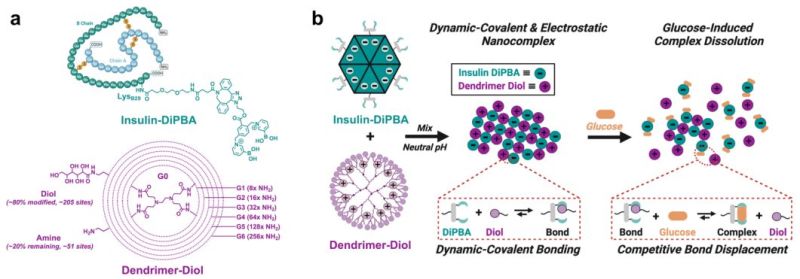
A major challenge for people who have a form of diabetes is the need to regulate the glucose levels in their body. Normally this is where the body’s insulin-producing cells would respond to glucose with a matching amount of insulin, but in absence of this response it is up to the patient to manually inject insulin. Yet recent research offers the hope that these daily injections might be replaced with weekly injections, using insulin-binding substances that provide a glucose-response rather like the natural one. One such approach was tested by Juan Zhang and colleagues, with the results detailed in Nature Biomedical Engineering.
In this study, the researchers injected a group of diabetic (type 1) mice and minipigs with the formulation, consisting out of gluconic acid-modified recombinant human insulin bound to a glucose-responsive phenylboronic acid-diol complex. The phenylboronic acid element binds more easily to glucose, which results in the insulin being released, with no significant hypoglycemia observed in this small non-human test group. A major advantage of this mechanism is that it is fully self-regulating through the amount of glucose present in the blood.
This study is similar to work by Sijie Xian and colleagues published in Advanced Materials (ChemRxiv preprint) where a similar complex of glucose-sensitive, bound insulin complex was studied, albeit in vitro. With non-human animal testing showing good results for this method, human trials may not be far off, which could mean the end to daily glucose and insulin management for millions in the US alone.
(Top image: Chemical structures of the insulin-DiPBA complex and its functioning. Credit: Sijie Xian et al., 2023)
0 Commentaires